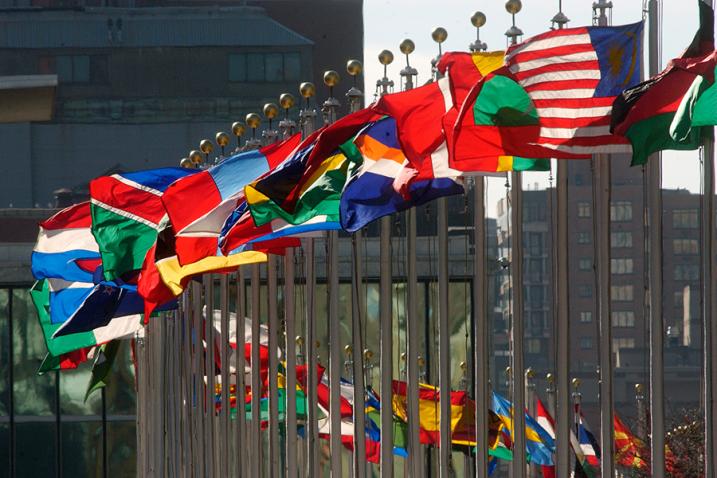The United Nations Declaration of Human Rights (UDHR) is a monumental document that serves as a beacon of hope and justice for mankind. It transcends geographical boundaries and cultural distinctions, establishing a universal standard intended to safeguard the inherent dignity of every individual. In this discourse, we shall explore the key articles of the UDHR through the lens of Christian theology, examining how these rights align with biblical principles that affirm the sanctity of human life and the moral imperative to love one’s neighbor.
At its core, the UDHR proclaims that all human beings are born free and equal in dignity and rights. This resonates profoundly with the biblical notion of Imago Dei—the belief that humans are created in the image of God (Genesis 1:27). In this foundational concept, the very essence of humanity is divinely ordained and valued. As Christians, recognizing that every individual mirrors the divine allows us to acknowledge their rights and dignity, fostering a culture imbued with respect and compassion. This understanding becomes particularly poignant when considering Article 1: “All human beings are born free and equal in dignity and rights.” It implores us to not only understand our own worth but to advocate for the worth of others, embodying the commandment to love our neighbors (Mark 12:31).
Moving forward, Article 3 asserts the right to life, liberty, and security of person. This article resonates with Christians through the reverence for life found in Scripture. The Psalmist eloquently states, “For you created my inmost being; you knit me together in my mother’s womb” (Psalm 139:13). This acknowledgment of life as a sacred gift informs our ethical stances on issues such as abortion and euthanasia. Upholding the right to life challenges the believer to be a proactive guardian of the vulnerable, echoing the teachings of Christ who commended us to care for “the least of these” (Matthew 25:40). Such an approach mandates Christians to engage in dialogues around systemic inequalities that threaten this fundamental right.
Equally significant is Article 19, which guarantees the right to freedom of opinion and expression. A cherished aspect of Christian identity is the ability to proclaim faith and truth. This aligns with the biblical mandate to share the Gospel with fervor and conviction (Matthew 28:19-20). However, this right extends beyond mere freedom to express one’s beliefs. It reflects an intrinsic acknowledgement that every person’s voice has value in the tapestry of society. While Christians celebrate their own freedom of expression, they must also cherish and protect the voices of others, fostering an environment where diverse perspectives can coexist harmoniously. This further embellishes the Christian ethos of grace and understanding amidst differences.
Article 21 delineates the right to participate in government, emphasizing the concept of governance by the people. In the Christian context, this notion is complemented by the call to stewardship, inviting believers to engage in the political sphere (Romans 13:1). Active participation can be viewed as an extension of our faith, ensuring that justice is sought and the marginalized are represented. This divine vocation extends to the encouragement of equitable legislation, functioning not merely as citizens, but as agents of transformation reflecting the heart of God in civic matters. In this way, Christians fulfill their role as salt and light (Matthew 5:13-16) in the world, actively contributing to a society built on justice, accountability, and inclusivity.
Exploring further, Article 26 emphasizes the right to education. It is encapsulated by the fundamental belief that knowledge is a precious gift. The journey of learning is akin to the growth of a seed planted in fertile soil, nurtured by the light of understanding (Matthew 13:31-32). Education equips individuals with the tools necessary to unlock their potential and empower others. In a society where education is a privilege rather than a right, Christians are called to advocate for equitable access. In doing so, they exemplify the virtues of generosity and solidarity, addressing disparities that infringe upon the inalienable rights of the less privileged.
The declaration culminates in Article 30, which articulates that no one may engage in activities that undermine the rights contained within the Declaration. Here lies a challenge for Christian communities to examine their own practices and ensure they align with the principles of justice, compassion, and equity. The Gospel calls believers to be mirrors of Christ’s love, actively dismantling systems that perpetuate discrimination or injustice. It is within these intersections of faith and action that the UDHR finds its resounding purpose among believers, reinforcing the notion that our rights are interdependent and coexist with our responsibilities to one another.
Overall, the United Nations Declaration of Human Rights aligns harmoniously with the Christian faith, inviting believers to reflect deeply upon the inherent dignity of all persons. The key articles illuminate the ethical framework through which Christians can approach social justice, advocacy, and human compassion. More than mere words, these articles are parameters that challenge society to create a world reflective of the Kingdom of God—where every individual stands free, dignified, and empowered to pursue the fullness of life.
In a world often overshadowed by strife and inequality, the UDHR stands as an uncompromising call to action for those who profess faith in Christ. By embodying these principles within the Christian framework, believers are empowered to be advocates for justice, defenders of the oppressed, and heralds of hope, ultimately contributing to a society that mirrors the heart of God.



